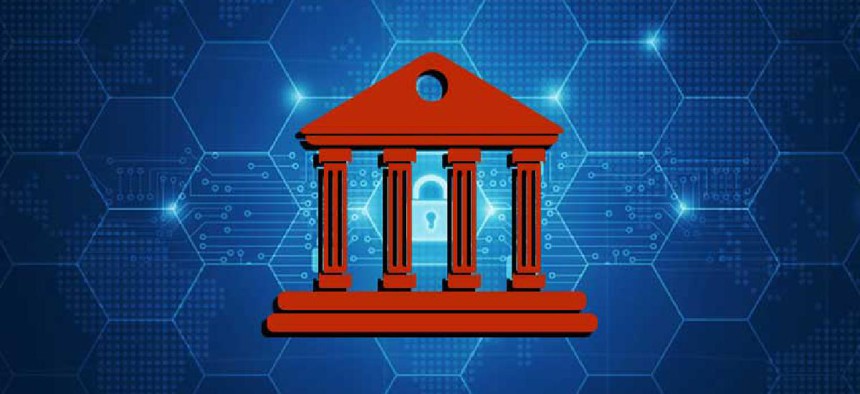Your personal data is too public for agencies to verify

The widespread loss and theft of data on Americans has made a once popular form of remote identity proofing obsolete, and agencies need to start looking into other options.

The widespread loss and theft of Americans personally identifiable information has steadily eroded a once popular form of remote identity proofing, and agencies need to start looking into other options, according to the Government Accountability Office.
For decades, signifiers like name, address, date of birth or Social Security number might have been all one needed to establish an identity when interacting with federal agencies.
In a new report publicly released Jun. 14, the watchdog agency says that large-scale cyberattacks and data breaches like the 2015 Office of Personnel Management and 2017 Equifax hacks have flooded the black market with so much personal data that such information is now practically useless as a means of verifying identity in the digital age.
"The Equifax breach, in particular, raised concerns about the vulnerability of federal agencies that rely on information maintained by [Credit Reporting Agencies] to verify the identity of individuals who apply electronically for benefits and services," the report said.
Auditors examined six federal agencies with major public-facing web applications that rely on identity proofing solutions from the three major credit agencies: the General Services Administration, IRS, Social Security Administration, Department of Veterans Affairs, the U.S. Postal Service and the Centers for Medicare and Medicaid Services.
Those agencies have all used some form of "knowledge-based" verification, essentially asking applications detailed personal questions "under the presumption that only the real person will know the answers to these questions." This type of verification can take place over the phone or through web-based questionnaires and rely on the same information collected by credit agencies like Equifax, Experian and TransUnion.
For example, CMS collects the names, dates of birth and addresses of applicants along with answers to personal and financial questions held by credit agencies before granting users access to Healthcare.gov services. Other portals like Login.gov rely on similar techniques and are used by OPM, the Department of Homeland Security, USAJobs.gov and GSA to interact with customers.
Those methods are no longer feasible over the long term, and NIST guidance in 2017 essentially prohibited knowledge-based verification for sensitive applications, citing an unacceptably high risk. A number of federal agencies, including GSA and IRS, have already moved on to other forms of identity verification, while every other agency except CMS said they either have plans in place or intend to move away from the practice.
GAO consulted with NIST to develop a number of alternatives options, most of which rely on an item most Americans constantly keep on their person: their cell phones.
Sending photos of your driver's license or other credentials via a mobile application, or going through an SMS text-based two factor authentication process, were both listed as easy to implement, secure methods to verify identity. Failing that, agencies could also send confirmation codes through the mail to a listed place of residence, which users can put into a web app were all listed as more secure alternatives for verification.
Of the six agencies, only the Department of Health and Human Services -- which houses CMS – did not concur with GAO recommendations to implement other forms of identity verification. In particular, HHS said rural users who live too far away for in-person visits or who may lack access to cell phones would find it harder to access federal health benefits as a result.
"The alternatives to knowledge-based verification proposed by GAO in their report are not suitable for certain populations served by CMS as they would create undue burden, create barriers to accessing federal services, or may be cost prohibitive," wrote Matthew Bassett, Assistant Secretary for Legislation at HHS.
NEXT STORY: Quick Hits


